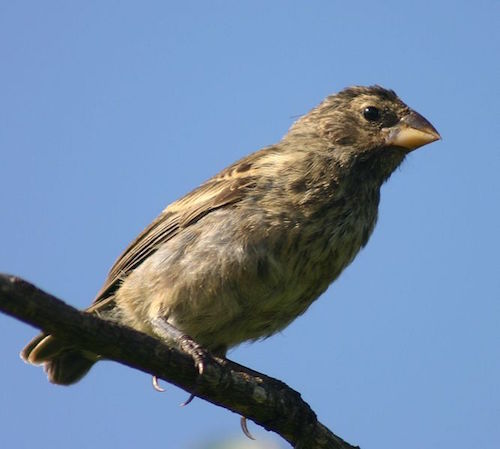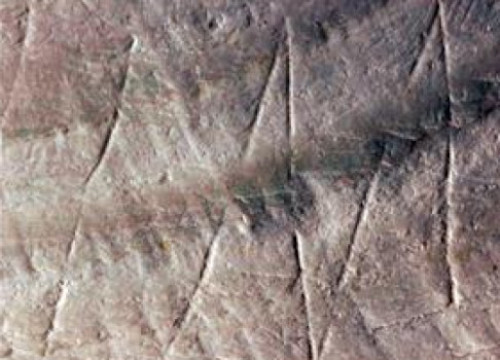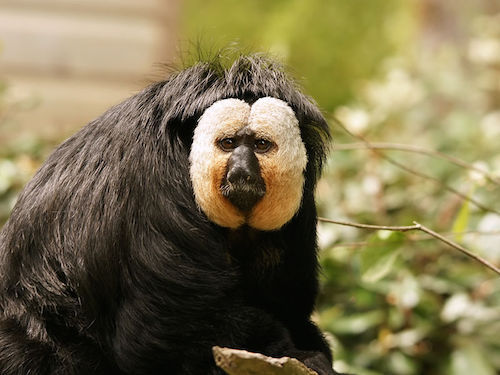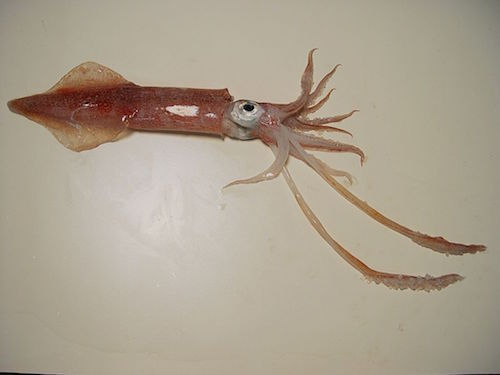Discovery Institute's Blog, page 185
February 17, 2015
Evolution Within Limits: Nature Study Identifies Genetic Basis for Galápagos Finch Beak Variation

Decades ago researchers Peter and Rosemarie Grant conducted painstaking research on finches in the Galápagos Islands. They found that during a drought period the seeds eaten by the finches became tougher, and those birds with bigger beaks were better able to survive and reproduce. After the drought ended, however, the seeds returned to their normal state and beaks also returned to their pre-drought sizes. As the Grants explained:
Effects of the droughts of 1977 and 1982 were approximately off...
Intelligent Homo erectus "Used Shells for Tool Production and Engraving"

I've commented in the past on the debate over whether Homo erectus was an unintelligent, bungling prehuman hominid, or an intelligent boat-building seafarer. Now a new paper in Nature, "Homo erectus at Trinil on Java used shells for tool production and engraving," weighs in on the question. According to the abstract:
The manufacture of geometric engravings is generally interpreted as indicative of modern cognition and behaviour. Key questions in the debate on the origin of such behaviour are...
Test of Functional Sequence Space Shows Less Tolerance for Mutations than Expected

When you change a tire, you expect the holes on the wheel to line up with the lug bolts on the axle. But manufacturing defects can occur. The bolts might be slightly offset, or slightly longer or shorter than spec. A bolt or two might be missing. How many defects, and how large, will still permit you to continue down the road without being stranded?
Protein interactions are a more sophisticated instance of much the same problem. Proteins must interact with other proteins, often fitting like...
February 16, 2015
Problem 9: Neo-Darwinism Struggles to Explain the Biogeographical Distribution of Many Species

Editor's note: This is Part 9 of a 10-part series based upon Casey Luskin's chapter, "The Top Ten Scientific Problems with Biological and Chemical Evolution," in the volume More than Myth, edited by Paul Brown and Robert Stackpole (Chartwell Press, 2014). Previous installments can be found here: Problem 1, Problem 2, Problem 3, Problem 4, Problem 5, Problem 6, Problem 7, Problem 8. When the series is complete, the full chapter will be posted online.
Biogeography is the study of the distributi...
A Firewall Between Science and Culture? Questions and Answers with John West, Author of Darwin Day in America
ENV: What is "Darwin Day," and why is your book titled Darwin Day in America?
West: "Darwin Day" is Charles Darwin's birthday, February 12. There is a growing movement around the world to turn the day into a kind of secular holy day complete with its own rituals to honor Darwin. These Darwin Day celebrations expose just how much Darwinian evolution is like a secular religion for many of its proponents. At the same time, I think Darwin Day provides a metaphor for how our public policy and cult...
February 15, 2015
Is Jahi McMath Brain Dead?

I refer readers to a post by one of my colleagues, Wesley J. Smith. He comments on the ongoing debate over the "brain death" of Jahi McMath, the child who suffered brain damage during a surgical procedure in California in 2013. She was declared brain dead, although her family has continued to support her (feed her, etc.) and several doctors have contradicted the original diagnosis of brain death.
I have no personal knowledge of the case. Perhaps she is brain dead, and her family and supporter...
February 14, 2015
Squid Recodes Its Own RNA

Researchers at Tel Aviv University were not planning on shaking a pillar of Darwinism when they found something interesting: an animal that can re-code its own protein library "on the fly" to adapt to its surroundings. A news item starts with a description of the old status quo:
The principle of adaptation -- the gradual modification of a species' structures and features -- is one of the pillars of evolution. While there exists ample evidence to support the slow, ongoing process that alters...
Squid Recodes Its Own DNA

Researchers at Tel Aviv University were not planning on shaking a pillar of Darwinism when they found something interesting: an animal that can re-code its own protein library "on the fly" to adapt to its surroundings. A news item starts with a description of the old status quo:
The principle of adaptation -- the gradual modification of a species' structures and features -- is one of the pillars of evolution. While there exists ample evidence to support the slow, ongoing process that alters...
February 13, 2015
Share the Trailer: Scientism in the Age of Obama
In the expanded paperback edition of his book Darwin Day In America: How Our Politics and Culture Have Been Dehumanized in the Name of Science, political scientist John G. West explores the misuse of science in American culture during the Obama years in a brand new chapter titled "Scientism in the Age of Obama -- and Beyond." For more information, visit the . Share the trailer -- and read the book.
The Netherlander Euthanasia Contagion

Newsweek has a long article -- in which I briefly appear -- exploring how and why the euthanasia monster broke its fetters to turn the Netherlands into ground zero for the culture of death (now seriously challenged by the even more death-enthusiastic Belgians).
Reporter Winston Ross interviewed experts and the impacted on both sides of the issue, so you should read the whole thing. What I wanted to share here, are the theories about why Netherlanders have permitted euthanasia with virtually n...
Discovery Institute's Blog
- Discovery Institute's profile
- 15 followers




